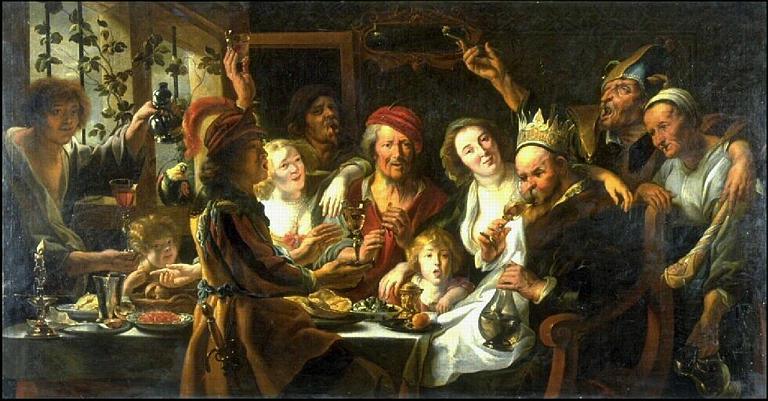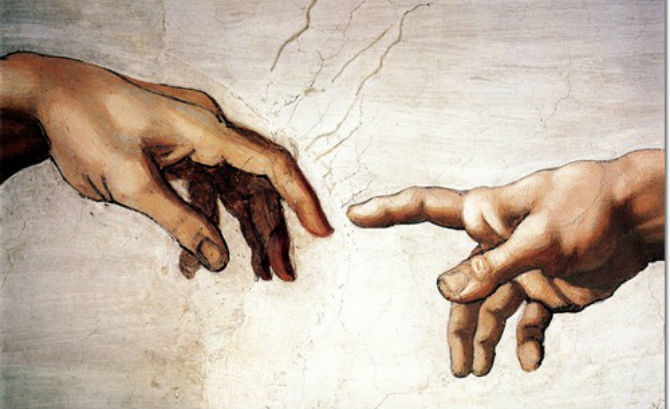 Proverbs 31:1-9
Proverbs 31:1-9
The words of King Lemuel, the oracle which his mother taught him:
What, O my son?
And what, O son of my womb?
And what, O son of my vows?
Do not give your strength to women, or your ways to that which destroys kings.
It is not for kings, O Lemuel, it is not for kings to drink wine,
Or for rulers to desire strong drink, for they will drink and forget what is decreed, and pervert the rights of the afflicted.
Give strong drink to him who is perishing, and wine to him whose life is bitter. Let him drink and forget his poverty and remember his trouble no more.
Open your mouth for the mute, for the rights of all the unfortunate. Open your mouth, judge righteously, and defend the rights of the afflicted and needy (NASB).
Although we cannot be sure whether any women authored books or passages of Scripture, there are a number of texts in Scripture attributed to women, including this one. King Lemuel is otherwise unknown to us, although Murphy suggests that he was king of “Massa,” understood as an area in northern Arabia (Murphy, Proverbs (WBC), 239). He bases this conjecture on a possible translation of the word “oracle” as Massa. The name itself, however, is a Hebrew word meaning “belonging to God” (Kidner, Proverbs (TOTC), 182). The passage has a number of similarities with other wisdom texts from the Ancient Near East, and even includes Aramaic words and idioms. Nevertheless, Murphy (240) notes that this is the only instance in such literature where the king is instructed by his mother. In the end he considers the oracle to be a Hebrew composition.
It is tempting to suggest that the passage is about “wine, women, and song,” although there is no mention of indulging in the pleasures of music. Nevertheless, the king is instructed to “open his mouth!” Of wine and women, however, there is firm, blunt instruction, though the order is reversed. The mother offers this counsel on the basis of her maternal authority: he has come forth from her womb, having received his life from her. Further, he is the “son of my vows,” perhaps reminiscent of the promise Hannah made with respect to Samuel (cf. 1 Samuel 1:11, 28).
“Give not your strength to women, or your ways to that which destroys kings!” The admonition is more a warning against promiscuity than an assertion of the supposed wickedness of women. Kings often have the resources to indulge their desires in ways not available to poorer, less powerful folk. Nor is it for the king to indulge in wine and other strong drink lest he forgets the decrees and perverts the rights of the afflicted. Whereas the king is not to drink and forget, he should give strong drink to the afflicted that they may drink and forget – their afflictions and poverty. This, too, is unusual advice, especially in light of a text like Proverbs 20:1, a strident repudiation of strong drink and drunkenness (cf. 23:20-21, 29-35). Perhaps it is best to let verse 6 set the scenario: “Give strong drink to him who is perishing,” and so see the advice in terms of administering a palliative or an analgesic.
Finally, the mother counsels her son to open his mouth for the mute, for the rights of the dispossessed, afflicted, vulnerable and needy. Rather than forget their rights, he is to enter the fray on their behalf, defending their rights and upholding their cause.
A number of themes in this short passage deserve reflection.
- Some things are wrong, bad and evil for anyone, but especially for those charged with leadership or who hold the reins of power, justice or influence. Self-indulgence eviscerates moral awareness, courage and determination. Drunkenness, sexual laxity and other self-indulgent pursuits cause one to centre in on themselves and to forget their responsibilities, and sometimes, all else. These things destroy leaders, cause them to become oppressors, and tear at the very fabric of trust that binds the relationship of leader and followers.
- Murphy translates verse three as “Do not give your strength to women, or your power to those who destroy kings.” Many of us have been granted a measure of strength or power, often in different spheres of endeavour or responsibility, and we can use that power to indulge ourselves and satisfy our own desires, or we can use it to help, benefit and bless others around us. Instead of spending it on himself, the king is admonished to preserve and direct his strength for the sake of the mute and the vulnerable. He is to remember the “decrees,” the sacred trust granted to him as king, as a leader, as one given power and influence. He is to serve others rather than himself, and not simply any others, but the poor and defenceless, those who have no other helper, and those who cannot repay him with favours.
- The primary service the king is to render is to “open his mouth” for the mute (vv. 8, 9). According to Murphy, “the ‘mute’ are not so much physically as they are socially weak, without a voice among those who administer justice” (241). I find this one particularly challenging. Too often, I think, I have not spoken up when I could and should have done so. Larry Crabb entitled one of his books “The Silence of Adam,” arguing that Adam stayed silent when he should have spoken up. He suggests this a sin that befalls many men particularly. It is true there is a time to be silent, but there are also times where to be silent is to add affliction to those already suffering. I must remember to “open my mouth for the mute.”
- It is not uncommon to hear that the language of “rights” emerged in western culture with the Enlightenment. Although there may be some truth in that, this passage is a clear biblical example of rights language, though in Scripture it applies to the “rights” of the vulnerable, afflicted and needy. It is not at all unusual in our culture for the powerful to stand up for their rights. Again, this passage calls us to stand up for others’ rights.
- Finally, I have sometimes tried to imagine a world in which women held the offices and reins of power instead of men. Would such a world be different to what it often is now? Certainly women are sinful just as men are. But would a world ordered by women be as given to violence as it is now? Would abuse and oppression be so widespread? Perhaps. Lord Acton’s famous dictum probably applies to women as much as it does to men although it seems he had men specifically in mind: “Power tends to corrupt, and absolute power corrupts absolutely. Great men are almost always bad men.” But the words of this passage originated as the counsel of a woman, a mother using her power and influence to train her son who one day would be king. May her tribe increase.
